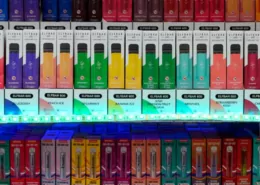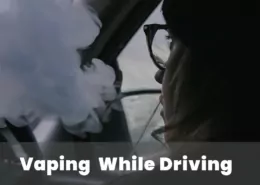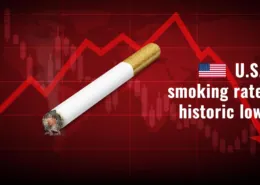New Sin Tax Introduced in South Africa cos the Surge in Vape Juice Prices
The vaping industry in South Africa is about to face a significant change as a new sin tax for vaporized tobacco products will be introduced next month. This tax has raised concerns and sparked debates among various stakeholders, including the Vapour Products Association South Africa (VPASA) and the Research Unit on the Economics of Excisable Products (REEP). In this article, we’ll delve into the details of this new tax and the implications it could have on the industry and public health.
Sin Tax: What It Entails
Starting on June 1st, a R2.90/ml tax on vape juice will be introduced, potentially doubling the price of some products. A 100-millilitre bottle of vape juice, currently costing R200, will be subject to a R290 tax, raising its price to R490 if the tax is entirely passed on to consumers.
The Vaping Industry’s Reaction
Asanda Gcoyi, the CEO of VPASA, has stated that while the industry is not surprised by the decision, the rate of the tax is “too high” in their view. They expect a 26% decrease in vape juice demand and a potential loss of 2,250 jobs by year-end.
The REEP Perspective
However, Corné van Walbeek, the director of REEP, has argued that the R2.90/ml tax may not go far enough to curb vaping. REEP has proposed a R5/ml tax with a minimum R50 tax burden on electronic nicotine and non-nicotine delivery systems.
Debating the Health Implications of Vaping
The VPASA Argument
Gcoyi believes that vaping poses only 5% of the health risks of smoking and provides an alternative for smokers who find quitting difficult. She argues that the sin tax should be proportional to the harm caused by vaping.
The REEP Counterpoint
Kirsten van der Zee, a research officer at REEP, suggests that e-cigarettes can serve as a gateway for non-smokers to start using nicotine, creating a new avenue for harmful habits. She believes that the health impacts of vaping are uncertain and that caution should be exercised.
A Global Struggle: Regulating Vaping
As countries worldwide grapple with regulating vaping, nuanced discussions are needed to find a balance between public health and economic considerations.
FAQs
What is the new sin tax on vape juice in South Africa?
The new sin tax is a R2.90/ml tax on vape juice, set to be introduced on June 1st.
How will this sin tax affect vape juice prices?
The tax could more than double the price of some vape juice products, as a 100-millilitre bottle of vape juice will be subject to a R290 tax, raising its price to R490.
What does the VPASA think about the sin tax?
The VPASA believes that the rate of the sin tax is too high and that it should be proportional to the harm caused by vaping.
What is REEP’s stance on the sin tax?
REEP argues that the R2.90/ml tax may not go far enough to curb vaping and has proposed a R5/ml tax with a minimum R50 tax burden on electronic nicotine and non-nicotine delivery systems.
What are the health implications of vaping according to both VPASA and REEP?
VPASA argues that vaping poses only 5% of the health risks of smoking and provides an alternative for smokers. REEP, on the other hand, suggests that e-cigarettes can serve as a gateway for non-smokers to start using nicotine, and that the health impacts of vaping are uncertain.
- Bestselling Vapes in UK After Disposable Ban: What to Stock 2025 - August 8, 2025
- Argentina Debates Stricter Vape Laws Amid Prohibition Failures - August 8, 2025
- Nigeria Advocacy Group Urged to Hike Tobacco & Vape Tax by 100% - August 8, 2025









